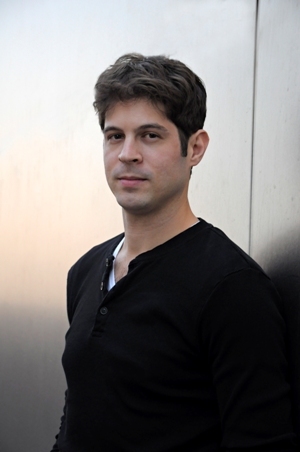Who or what inspired you to pursue a career in music?
My father is a world-class piano improviser, and my mother is a lyricist and children’s book author. I was surrounded by music my entire life, and began playing the piano at the age of three. Looking back, it was almost inevitable that I would eventually become a composer.
Who or what were the most important influences on your musical life and career?
My grandfather was my greatest mentor. He instilled in me a sense of drive, conviction, and integrity both personally and and professionally. Compositionally speaking, my greatest mentors have been my father, Steven Schoenberg, Robert Beaser, and John Corigliano. Bob and John were my teachers while at Juilliard.
What have been the greatest challenges of your career so far?
As composers, we are always looking to build relationships with performers, conductors, and performing arts organizations. There is a fine balance in terms of how one goes about navigating this path. For me, the greatest challenge has been learning to accept when someone simply does not respond to my voice and/or aesthetic. Art is subjective, but that is sometimes difficult to remember when you truly believe in a piece.
Which performance/recordings are you most proud of?
My current CD that was released on Inauguration Day. I believe that as a society we are entering a very dark time in our history. I hope that my music can help bring a little more beauty and optimism into our world.
What are the pleasures and challenges of working on a commissioned piece?
I guess the first thing that I have to say is that I love writing music, and feel so incredibly fortunate to do this for a living. Depending on the commission, sometimes there are more challenges than pleasures when working on a new piece. The pleasures come when I have written a moment (e.g., chord cluster, groove, harmonic progression, some melodic idea, a certain type of gesture, etc.) of music that I intuitively know works. That genuinely captures the right feeling, tone, and color, that I envisioned for the piece. At that point, all I want to do is hear it live and see how I can then make it better. The challenges are constant, and for me, the art of development is one of the greatest challenges of all. It’s easy to come up with an idea, but how I choose to execute that idea over time seems to be the most difficult aspect of composing for me. Taking a concept that is only one or two seconds long and then trying to make it evolve into a few minutes or longer. I love music that feels organic, that you can naturally trace back to its origin. Meaning, it feels more continuous than episodic.
How would you describe your compositional language?
There is something inherently American about my music, and it certainly embodies a more tonal and accessible realm. Although it does always requires multiple hearings to understand all of its different layers and colors. I hope that my work feels like a genuine reflection of our time. That it is somehow the music of today. Someone once said that my music can be described as “Radiohead meets Copland”. I have been very much inspired by both, as well as Dutilleux, Corigliano, Adams, Dalbavie, Gandolfi, and more..
How do you work?
I am a product of the 20th and 21st-centuries. I started composing before there was Finale. I use a combination of pencil and paper, improvisation through digital audio workstations like Logic Pro X, and working directly within Finale. I am an improvisor at heart, and all of my material is initially generated through improvisation.
How do you make your repertoire choices from season to season?
If only I could help an orchestra make programming decisions! Composers in general are never really part of the selection process. Usually my publisher or I are contacted by librarians or artistic administrators regarding commissions and/or performances.
Do you have a favourite concert venue to perform in and why?
Helzberg Hall at the Kauffman Center in Kansas City is one of the most spectacular halls in the United States. I’ve also been fortunate enough to have had two performances at the Hollywood Bowl, in Los Angeles. Both were unforgettable experiences.
Who are your favourite musicians?
My friends who have gone on to have careers in orchestras and ensembles. I love collaborating with friends because you have grown together as artists.
What is your most memorable concert experience?
Probably the Hollywood Bowl with the Los Angeles Philharmonic one month after my first child was born.
What do you consider to be the most important ideas and concepts to impart to aspiring musicians?
For composers: Always be true to yourself. Write music that you believe in. Music that you want to hear. Music that you think will have an impact on others. Don’t write what you think people want to hear, and don’t try to be someone other than yourself.
Where would you like to be in 10 years’ time?
Still in Los Angeles with my family, hopefully scoring some movies and TV shows, too!
What is your idea of perfect happiness?
Being with my family. And taking a vacation alone with my wife!
What is your most treasured possession?
My two boys.
What is your present state of mind?
Exhausted! But happy.
adamschoenberg.com
Recently named one of the Top 10 most performed living classical composers by orchestras in the United States, ADAM SCHOENBERG’s (b. November 15, 1980) music is “invigorating” (Los Angeles Times), and full of “mystery and sensuality” (The New York Times). His works have received performances and premieres at the Library of Congress, Kennedy Center, New York Philharmonic, The Cleveland Orchestra, Dallas Symphony Orchestra, and Hollywood Bowl.
